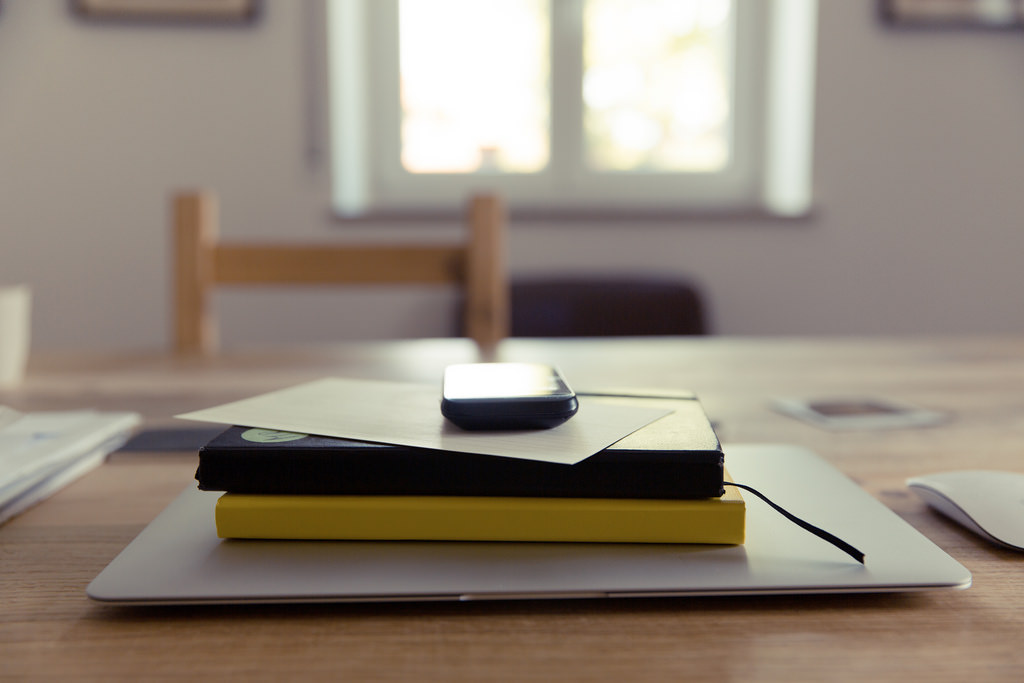16 Oct 2014
By Belle
Turn your notifications back on

It's becoming a common chorus that we should turn all notifications off and gain back our lost productivity. And it makes sense—after all, we're bombarded with notifications these days. It seems like every app you install on your phone wants to send you notifications, even if they're unnecessary.
Side note: With iOS 8, it seems today widgets are the new push notifications (and I'm not the only one who thinks so). At least half the apps I've seen with widgets so far don't need widgets at all. Apps are exploding out of their containers and taking over every part of our phones. Good for utilities, but not for entertainment apps or games.
I want to argue against turning off all notifications. Although being notification-free can be helpful for focused periods of work, it also means we're out of touch with our friends, family, and colleagues, and that can be a problem sometimes. I've gone close to notification-free but I found I ended up wasting more of my time checking apps to see if there were updates, or frustrating Josh because I wasn't staying on top of customer requests.
I've decided the answer is to wrangle notifications, rather than dispensing with them entirely.
Keep your priorities straight
First of all, turn off any notifications you have set up for low-priority events. Do you have five different social apps, all with every possible notification turned on? Or notifications from a news app that you always ignore anyway?
Turn off notifications that aren't useful to you. Part of the reasoning behind the call to turn off all notifications is that they interrupt your focus. That's true, and if they're unimportant, they're not worth breaking focus for.
Put notifications in their place
For the important notifications that you want to leave on (e.g. support tickets, business emails, texts and calls), set them up in a way that works for you. Here are some examples of how I've set up mine:
Phone notifications light up the screen but don't vibrate (my phone's always on silent so they don't make noise, either). The exception to this rule is texts and calls, which I hardly ever get, and Viber, which is my main form of communication with Josh.
Mac notifications are few and far between. I have notifications on for my task manager so I don't forget anything urgent I need to do, and notifications turned on for email and Tweetbot. However, when I'm working I keep my email client closed, so I can't see the inbox, the badge count, or alerts to tell me there are new messages. I also keep Tweetbot closed, so I don't end up distracted by conversations.
It's unnecessary to have notifications on my phone and my computer for the same thing. Viber's pretty clever at not vibrating my phone most of the time if I have it open on my Mac at the same time. For email and Twitter, I keep them closed while I'm working and let my phone collect the notifications.
Just like waking up in the morning after the US has been up and about for half a day already, finishing a block of focused work with my email and Twitter closed means I can look at my phone to get a rundown of everything I missed. I can see who emailed me, who tweeted at me, what's going on in Slack, what tasks Josh has been working on in Asana, and so on.
This way I get the benefits of focused productive time without interruptions, but it's easy to catch up again when I'm done. And I want to know whether I'm missing anything while I work, a quick look at my phone's lockscreen will tell me whether I need to deal with anything urgently or not.
Turn everything off for a while
Sometimes I need a big chunk of time to work without any distractions. Sometimes I just want a break from the internet for half a day. Getting away from everything on my computer is easy: I just close my email, close Tweetbot, and keep them shut while I work. If I really want some "offline" time, I also turn off notifications on my phone.
The downside to this is that I'm disconnected and might miss something important. Luckily, I have a patient co-founder who keeps me abreast of anything urgent while I'm in offline mode. Josh and I share our inboxes for Hello Code, so I can rely on him to let me know if I need to reply to an urgent email.
In your case, you might need to let your colleagues, friends, or family know that you're going off the grid for a while. I always leave one contact channel open (Viber so Josh can get in touch) but with firm expectations that I'm only to be disturbed if it's important. For you that might mean leaving Slack open for your team to stay in touch, or leaving your phone on for calls but upside down so you don't see any notifications.
Be clear about your expectations and how long you plan to be out of touch for. Rather than turning off all notifications all the time, small bursts with no interruptions can work wonders without leaving you out of loop completely.
Exist helps you find work/life balance. And we just added free 14-day trials!
Image credit: Markus Spiske